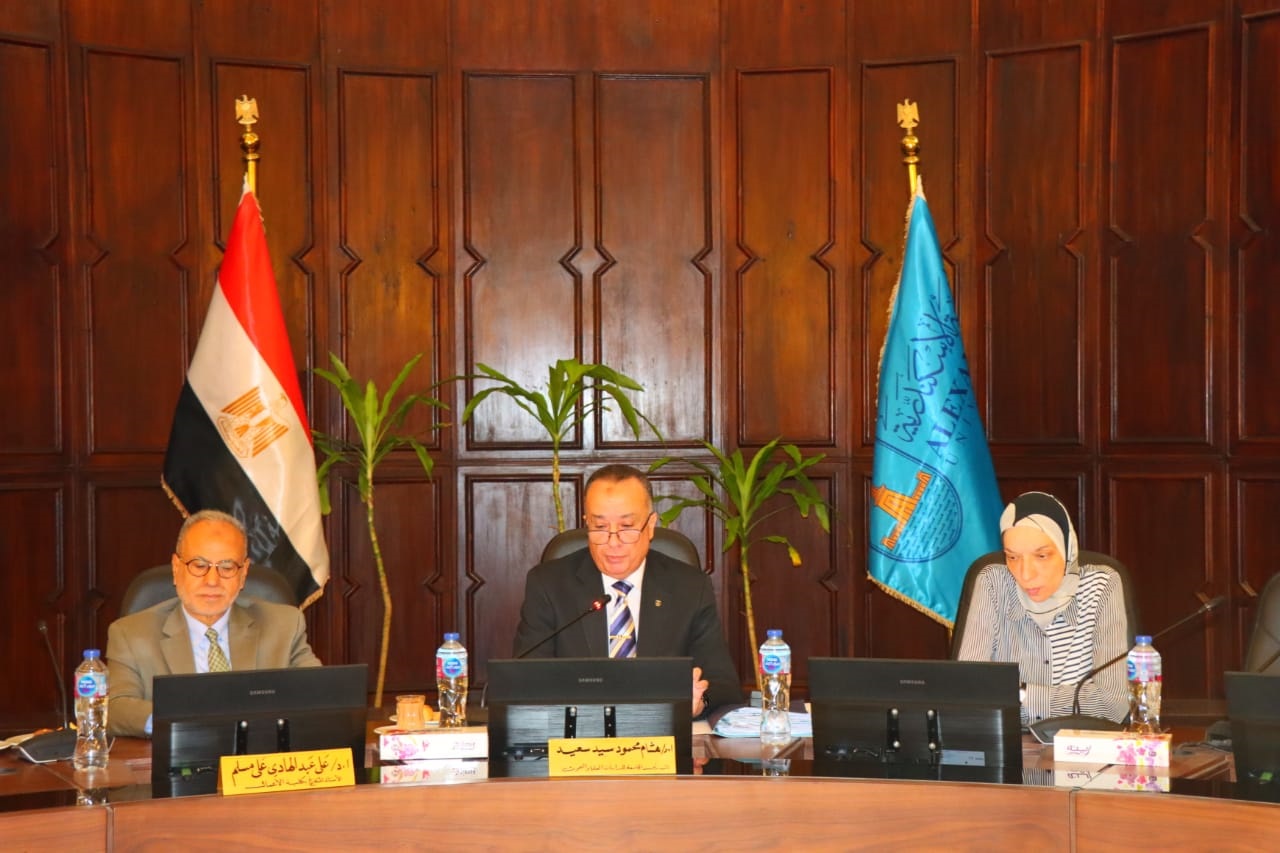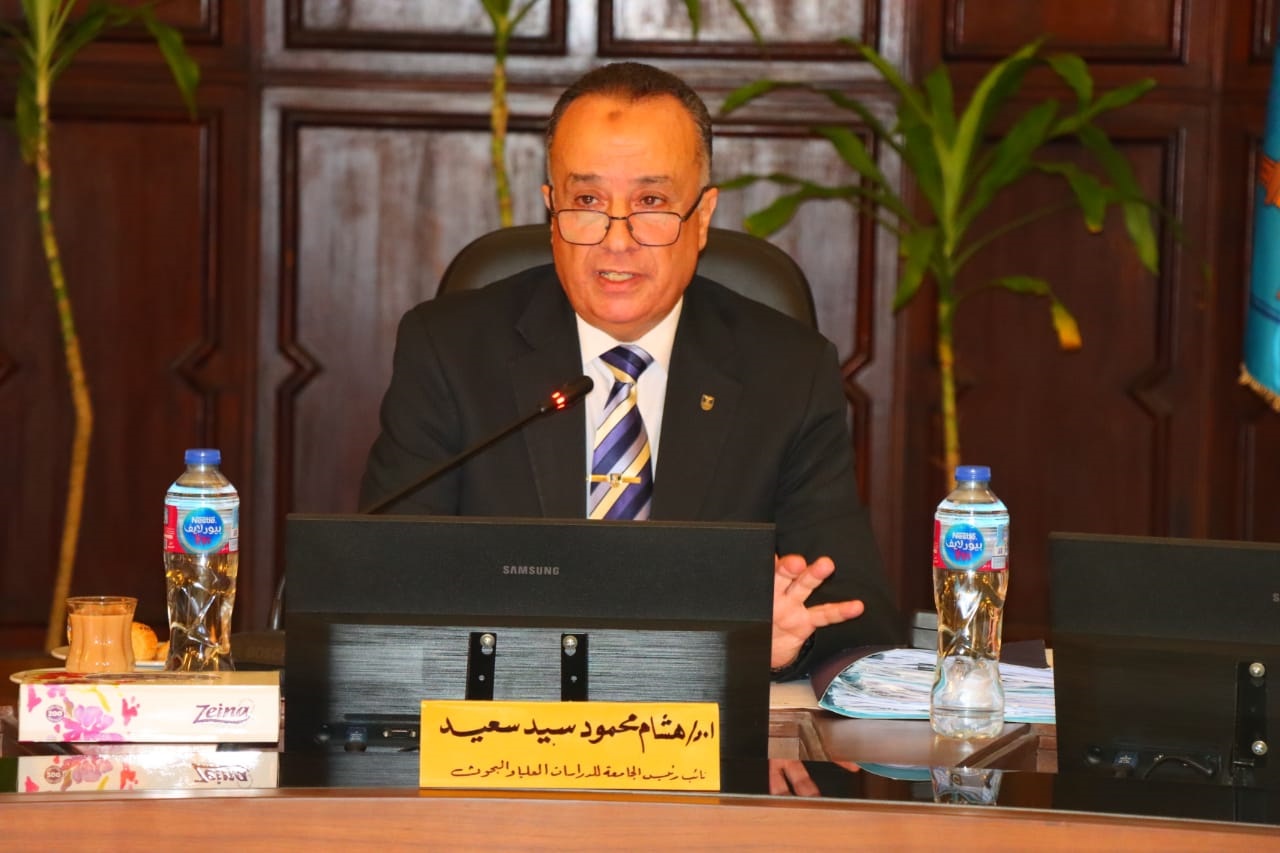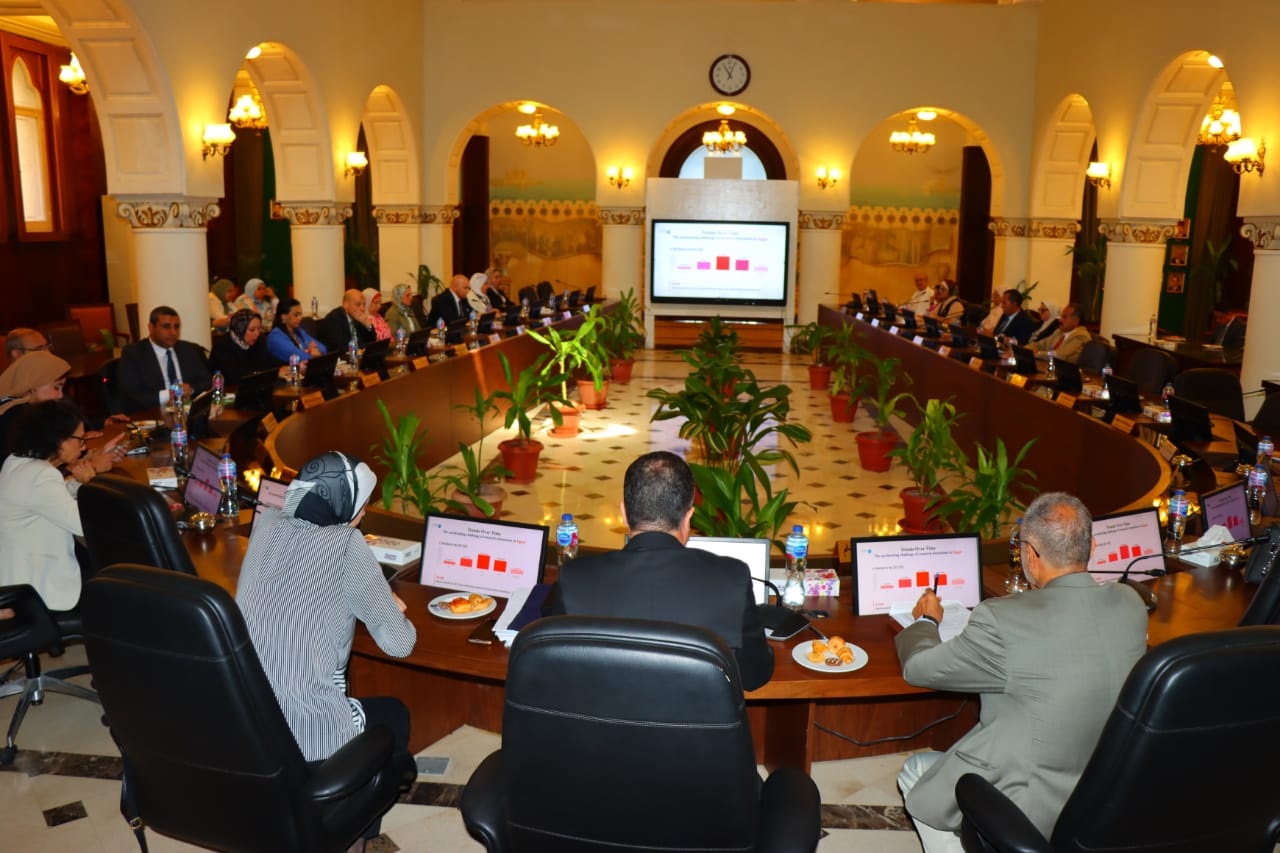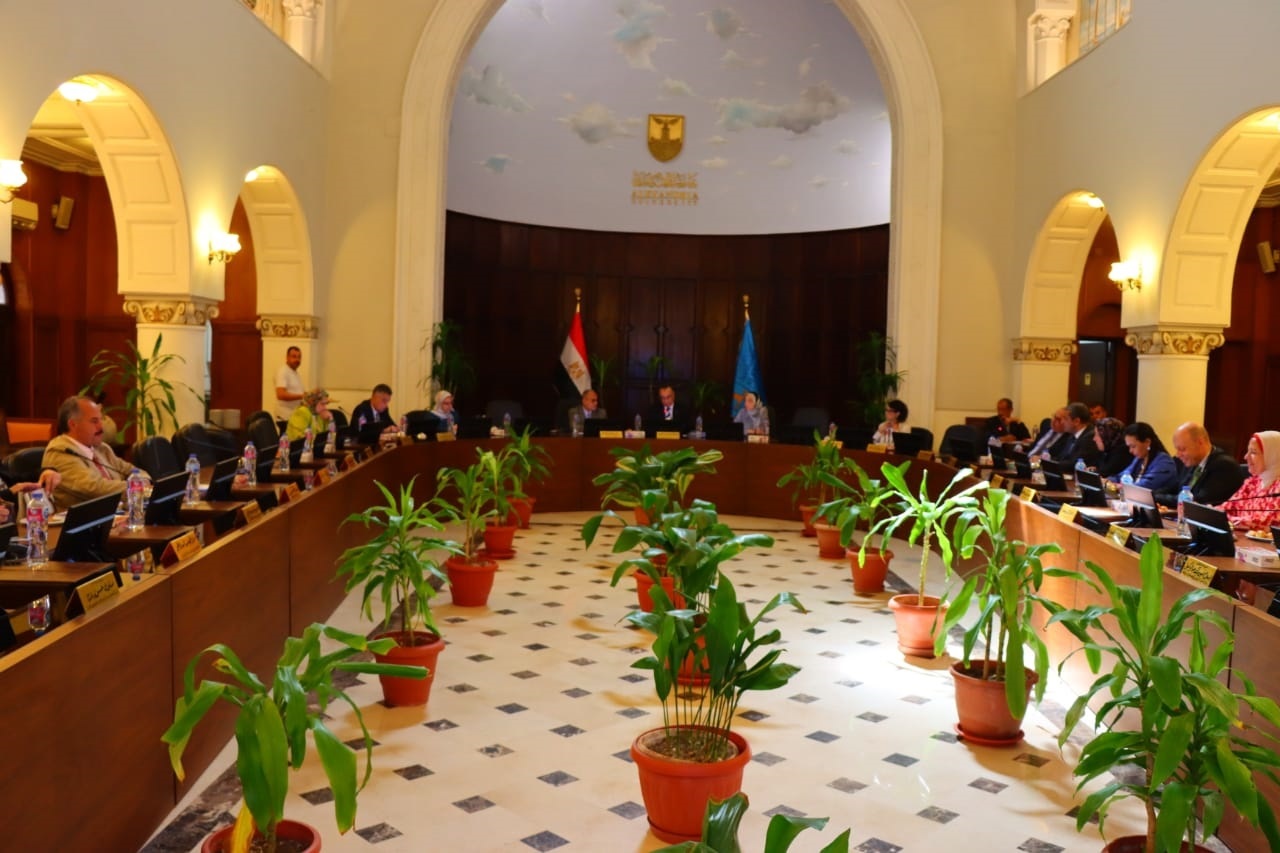
The Council of Postgraduate Studies and Research, chaired by Dr. Hesham Said, Vice President of the University for Postgraduate Studies and Research, convened its session on Tuesday, September 23, 2025, to discuss the topic of Research Integrity in Egyptian Universities: Analysis and Policy Recommendations.

During the session, Dr. Hesham Said explained the concept of article retraction from international journals after publication and the reasons behind such retractions, including self-retraction or honest mistake retraction as well as editorial board retractions, which are considered corrective actions within the databases containing these articles. He pointed out that, over the past five years, a total of 953 articles affiliated with Egyptian universities were retracted from international journals, including 250 articles in 2023 alone. Moreover, 353 retracted articles involved Egyptian researchers in collaboration with researchers from Arab universities. The presentation also highlighted the various causes of post-publication retractions in indexed international journals and addressed the phenomenon of paper mills, their characteristics, and the methods used to identify and avoid them.
Dr. Hesham Said further presented a comparative analysis of retracted articles across different countries, which revealed that retraction rates in the Middle East and North Africa are relatively high compared to European and American countries. The study recommended establishing centralized mechanisms for oversight and accountability within Egyptian universities, as well as expanding cooperation with other Arab universities to establish offices dedicated to research integrity, and collaborating with international bodies such as the Committee on Publication Ethics (COPE) in the UK. The presentation also reviewed the procedures followed in cases of retracted publications, including sanctions that should be imposed by the university through its Office of Research Integrity, in order to safeguard the reputation, integrity, and global ranking of Alexandria University.

The Council also approved a series of academic agreements and programs, including a Memorandum of Understanding with the Université du Littoral Côte d’Opale, France, for student exchange and joint dual degrees; a proposed cooperation agreement with Ibn Tofail University, Morocco, in the field of scientific publishing, joint research projects, and the development of new collaborative academic programs; an agreement with the Center for Language Education and Cooperation of the Ministry of Education of the People’s Republic of China to provide volunteers for teaching the Chinese language at the Faculty of Arts; and a cooperation agreement between the Alexandria University Center for Maritime Archaeology and Underwater Cultural Heritage and the Honor Frost Foundation for Maritime Archaeology.

In addition, the Council approved changing the title of the Master’s and PhD degrees in Audiology to Master’s and PhD in Audiology and Balance Medicine, in accordance with the recommendation of the Medical Studies Sector Committee of the Supreme Council of Universities. The Council also approved the establishment of a specialized Master’s program in Drug Design as a dual degree between the Faculty of Pharmacy, Alexandria University, and the University of Caen Normandy, France.
Furthermore, the Council endorsed new professional diploma programs at the Institute of Medical Research in Biological Analytical Chemistry and Laboratory Techniques, Medical and Industrial Nanotechnology, Medical Device Safety and Efficiency, and Applied Medical Artificial Intelligence. It also approved amending the credit hours of the Postgraduate Diploma in Tourism Guidance at the Faculty of Tourism and Hotels to 42 credit hours instead of 24.

 English
English